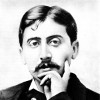“ to care less for truth than for what people will think, is a coward's part) , and must speak and act openly; for he is free of speech because he is contemptuous, and he is given to telling the truth, except when he speaks in irony to the vulgar. He must be unable to make his life revolve round another, unless it be a friend ”
Aristotle, Nicomachean Ethics (c. 334 BC - 330 BC). copy citation
| Author | Aristotle |
|---|---|
| Source | Nicomachean Ethics |
| Topic | speech irony |
| Date | c. 334 BC - 330 BC |
| Language | English |
| Reference | |
| Note | Translated by W. D. Ross |
| Weblink | http://classics.mit.edu/Aristotle/nicomachaen.mb.txt |
Context
“to be sluggish and to hold back except where great honour or a great work is at stake, and to be a man of few deeds, but of great and notable ones. He must also be open in his hate and in his love (for to conceal one's feelings, i.e. to care less for truth than for what people will think, is a coward's part) , and must speak and act openly; for he is free of speech because he is contemptuous, and he is given to telling the truth, except when he speaks in irony to the vulgar. He must be unable to make his life revolve round another, unless it be a friend; for this is slavish, and for this reason all flatterers are servile and people lacking in self-respect are flatterers. Nor is he given to admiration; for nothing to him is great. Nor is he mindful of wrongs;”
source


